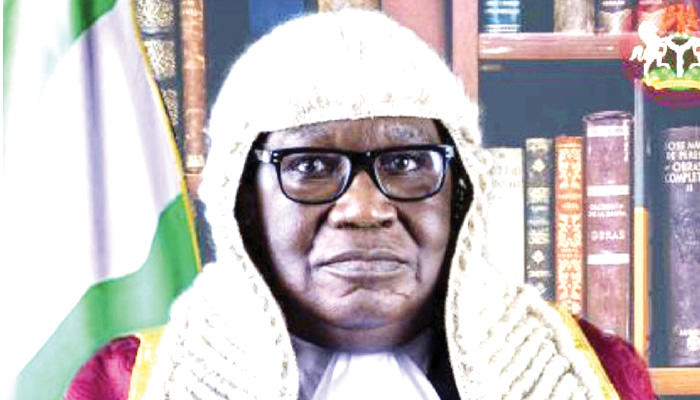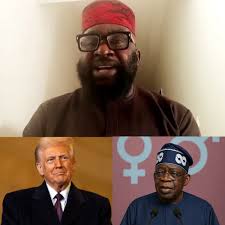
PEPT judgment raises more dust, exposes petitions’ loopholes
The verdict of the Presidential Elections Petitions Tribunal delivered poignant lessons to the litigants, lawyers and politicians, says ADEBAYO FOLORUNSHO-FRANCIS
The judgment of the Presidential Elections Petitions Tribunal where President Bola Tinubu was reaffirmed as the winner of the contentious February 25 presidential poll may have come and gone, but the memory and impact of the verdict would continue to linger in the minds of Nigerians.
Tinubu of the All Progressives Congress had scored a total of 8.7 million votes to defeat the presidential candidate of the Peoples Democratic Party, Atiku Abubakar, and his Labour Party counterpart, Peter Obi, who polled 6.9 million and 6.1 million votes, respectively.
The five-member panel had nullified the petitions of Atiku and Obi in the 12-hour judgment delivered on Wednesday. The tribunal was chaired by Justice Haruna Tsammani and assisted by Justices Stephen Adah, Monsurat Bolaji-Yusuf, Moses Ugo and Abba Mohammed. But Atiku and Obi both rejected the verdict again and vowed to challenge it at the Supreme Court.
The judgment has caused heated debates and mixed reactions among Nigerians, especially on social media, where people can easily express themselves. It is common to see individuals venting their emotions over the court’s decision. Certain mischievous social media trolls had also posted the sensitive details of the five justices and called them names in the wake of the judgment.
No doubt, Obi’s tale run in the last election won him a lot of followers who may still not accept the outcome of the appeal at the Supreme Court if it did not meet their expectations.
As the judgment progressed, it was interesting to see the various justifications presented by the justices before deciding the case. Justice Bolaji-Yusuf did not hold back when she picked the holes in the petitioners’ cases, telling them that it wasn’t the duty of the court to scout for evidence for the parties.
“They did not even bother to place such credible evidence before this court. Were they expecting the court to go and gather evidence from the street or the market? Or to be persuaded or intimidated by threats on social media. That is not the way of the court.”
On the other hand, Justice Ugo, also dismissed the assertion of the petitioners that the Independent National Electoral Commission simply closed down or blocked its result viewing portal to enable it to manipulate the election results in favour of the second respondent, Tinubu.
An amused Ugo queried whether such an allegation contained in the election petitions was ‘even worthy of belief.’ The justice expressed disappointment that the ‘’two sets of petitioners did not by any means discharge the burden on them of proving that the results of the presidential election of 25th February, 2023 as declared by 1st respondent were incorrect.’’
“At any rate, why did any of the two sets of petitioners not tender even a single polling unit result issued by INEC to their polling unit agents to support their claim of manipulation of election results by INEC, even as they all agreed that they have agents in the polling units?” he asked.
Justice Mohammed also shared the same sentiment when he argued that the petitioners failed to state the number of votes affected and the number of people disenfranchised as alleged by Atiku and Obi in their petitions.
He also stated that it was unimaginable that a petitioner would allege widespread rigging in 176,000 polling units, over 8,000 wards, 774 local government areas, the 36 states and the Federal Capital Territory without stating the specific place where the alleged irregularities occurred.
Perhaps, the one that seemingly jolted many political pundits and those who have been following the legal drama keenly was the status of the FCT and the contentious claim that the election winner must score 25 per cent in the nation’s capital.
Justice Tsammani held that the capital city was not superior to a state and neither were the FCT electorates special than the voters in the other parts of the country. “Nothing more than that; the FCT is not superior to a state,” the panel chairman declared.
Notwithstanding what many analysts considered as the rich contribution of the judgment to the nation’s jurisprudence, the camps of Atiku and Obi believed that justice was not served by the tribunal.
The Director of Strategic Communications for the Atiku/Okowa Presidential Campaign Council, Dele Momodu, alleged that the court “brazenly and deliberately” turned the Constitution upside down.
Momodu, however, believed that those with good conscience will look beyond the judgment, knowing that “Nigeria shall be free.”
In the camp of the Labour Party, social rights activist and an ally of Obi, Aisha Yesufu, swore that she would never consider Tinubu as her president.
But political analysts and lawyers noted that the varied reactions to the verdict were not unexpected. A political scientist at the University of Ilorin, Dr Alada Mohammed, observed that the sentiments expressed by a cross-section of Nigerians were normal, adding, however, that the justices would only rely on the facts placed before them in arriving at their decision.
“But I think the judiciary has done well by speaking to fact. One fundamental issue we have with our judiciary in Nigeria, which is affecting the outcome of judgment, is that it does not generate evidence by itself.
‘’It is what the petitioner(s) present before it that it will adjudicate. Just as the judges said, they won’t look for evidence on anybody’s behalf. The outcome might probably be different somewhere else.
“Again, you don’t bring a case on hearsay or what people say. There must be concrete evidence even if it is not in black and white. That is the beauty of doing your own homework properly. When you have a case, you have to go the extra length since the burden of proof is on you. This is a lesson for Nigerians.’’
“There have always been disputes over presidential election results. The 2023 presidential election case is, however, different in the sense that we have two top notch candidates who were vociferous in petitioning the judiciary to seek cancellation of the election. That speaks volume in view of the electoral process we have.’’
To reform the electoral process, Mohammed called for the amendment of the Electoral Act and the election guidelines.
A Senior Advocate of Nigeria, Rotimi Jacobs, submitted that the judgment was fair and also decried the manner the justices were exposed to ridicule by some mischievous elements on social media shortly after the judgment was passed.
“I think the media frenzy, undue publicity and divergent opinions from Nigerians, especially politicians, on a matter that is before the court is not healthy for our democracy.
‘’This particular judgment has been delivered and binding on everybody. People should be careful the way they are bringing down the judiciary.
“This is the first time I observed somebody going to social media to say that (Babatunde) Fashola was writing judgment for the tribunal. What kind of rubbish is this? Why should we degenerate as a people to this level? It is not good for us.
‘’Another one is the idea of splashing the pictures of those justices on social media and in churches where certain pastors were spotted in some viral videos praying against them is lamentable,’’ he noted.
Jacobs explained that some of the issues brought before the tribunal had been settled by the court in other election petition cases.
He cited the issue of double nomination which he said had been earlier decided by the Supreme Court.
“I think we should try to balance whatever is our political interest with national interest. There are some issues that have earlier been settled at the Supreme Court. One of them is the double nomination of Vice President Kashim Shettima. Why bring it up again and create tension?
‘’Those who are not lawyers will start thinking they are real issues. We all know the issue of Oyetola vs Adeleke has been settled. Why should any serious lawyer re-litigate it?
“This is why I think nationalism should be dear to all of us. It is high time we stopped seeing ourselves as Yoruba, Igbo and Hausa persons. The unnecessary tension we are creating over non-issue is too much.
‘’That judgment is sound and they (Atiku and Obi) have the right of appeal. Attacking those justices is uncalled for. I have seen some people going after them again on social media. If you are not pleased with a judgment, the Supreme Court is there.”
But a human rights lawyer and Chairman of the Nigerian Bar Association Section on Public Interest and Development Law, Dr Monday Ubani, disagreed with the judgment.
Ubani argued that there are some grey areas that should form a ground for appeal that he was hopeful the Supreme Court can look into.
“I hope the matter will still end at the Supreme Court. In that same judgment, if you take away almost all the witnesses’ statements, even if they are subpoenaed witnesses, there is no evidence. That also should be a ground of appeal whether those witnesses’ statements were rightly taken away. This is still something that will be decided by the Supreme Court.
“I don’t think we have made any progress with our Electoral Act if we say that judgment should be allowed to stand, especially w





